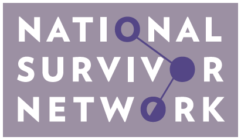Find Your Local Rape Crisis Center
Search RAINN’s directory to find your local rape crisis center. Additionally, your state’s coalition against sexual violence might have additional resources.
Rape crisis centers provide services which may include local hotlines, crisis support, medical and legal accompaniment, emergency funds, case management, therapy, support groups, and/or referrals to other assistance. They support all survivors of sexual violence, which includes child sexual abuse, sexual assault, sexual harassment, rape, stalking, and sex trafficking.
Find Your Local Partner or Domestic Violence Agency
Search the National Domestic Violence Hotline’s directory. Additionally, your state coalition against domestic violence may know of additional local resources.
IPV (intimate partner violence) and DV (domestic violence) organizations provide services which may include local hotlines, crisis support, medical and legal accompaniment, shelter, emergency funds, case management, therapy, support groups, and/or referrals to other assistance.
Know Your Rights for Immigrants
The Department of State has prepared a document to help you know your rights while working in the United States.
You Have the Right to:
• Be paid fairly
• Be free from discrimination
• Be free from sexual harassment and sexual exploitation
• Have a healthy and safe workplace
• Request help from union, immigrant, and labor rights groups
• Leave an abusive employment situation

